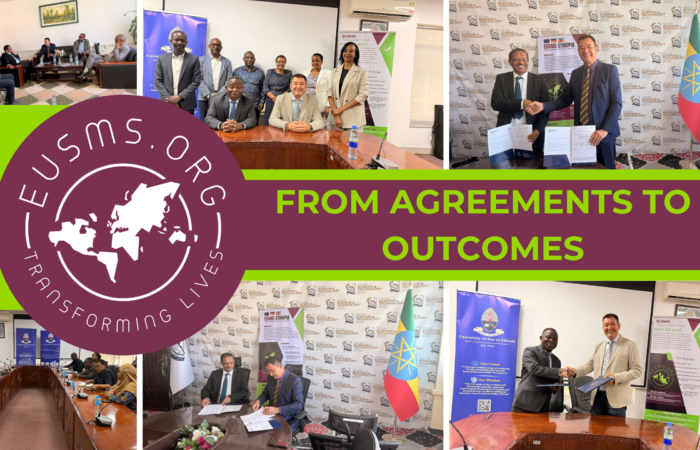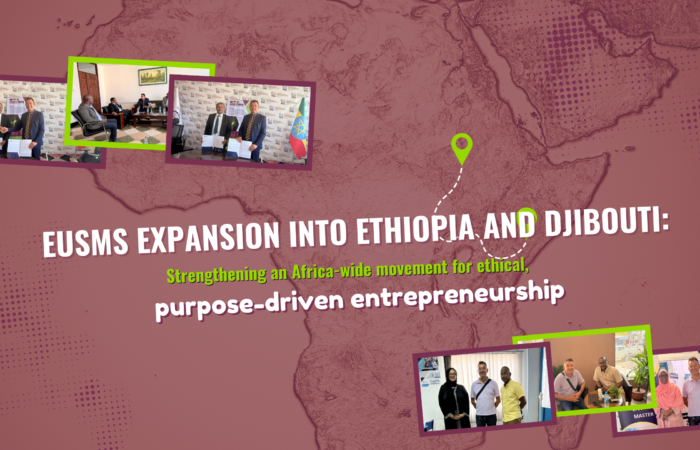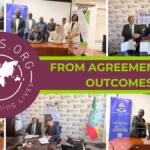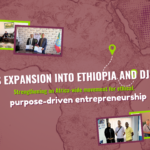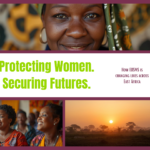For over half a century, foreign aid has been the dominant approach to addressing poverty and underdevelopment. Trillions of dollars have poured into nations across Africa, Asia, and Latin America to improve healthcare, education, food security, and infrastructure. While these efforts have achieved pockets of success, there is a growing realization that the traditional aid model often leads to unsustainable outcomes. Rather than building long-term resilience, aid; when not restructured can create cycles of dependency, erode local initiative, and hinder the growth of grassroots solutions.
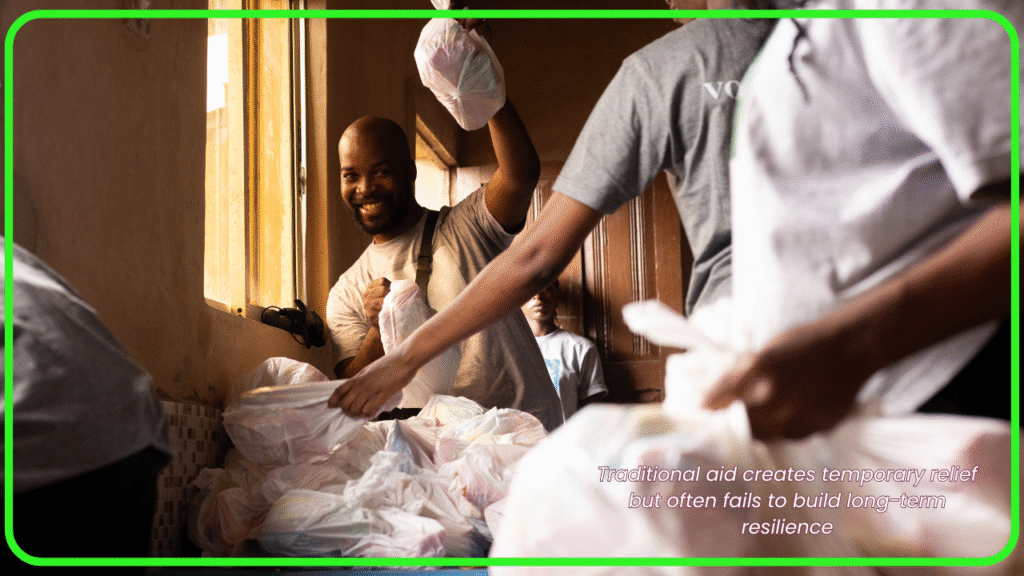
At EUSMS, we see these realities every day. That’s why we exist: to transform development from dependency to dignity by equipping local entrepreneurs to lead change in their own communities.
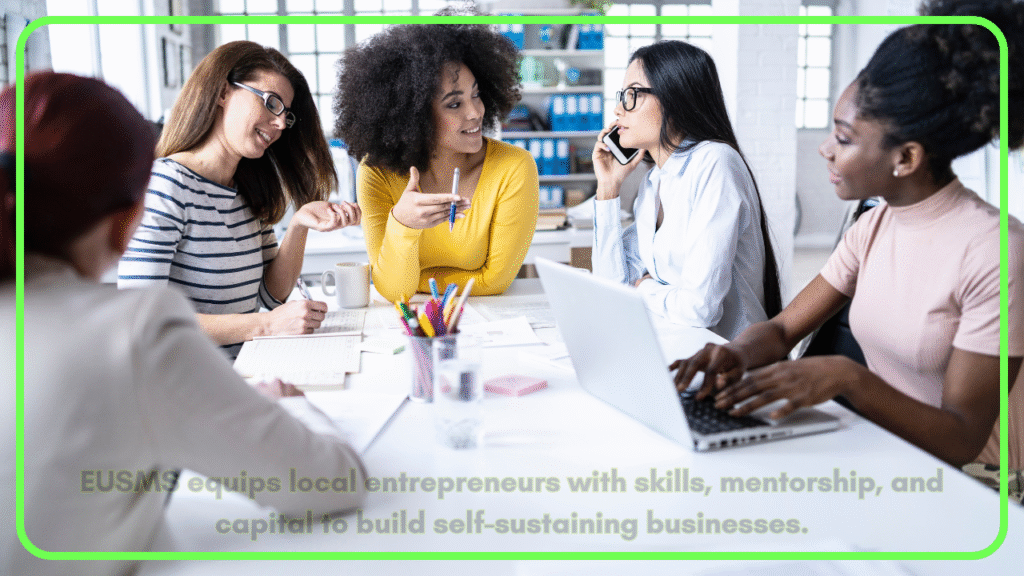
A new paradigm is emerging – one that sees local entrepreneurship not just as a solution, but as the cornerstone of sustainable development. This model doesn’t discard aid entirely; instead, it redirects focus: from giving, to investing; from dependency, to empowerment.
Local entrepreneurs understand their communities in ways external actors cannot. They are not outsiders arriving with generic solutions; they are insiders who live the challenges and envision the possibilities. Whether it’s a solar-powered cold storage facility in rural Kenya or a mobile payment platform in urban Ghana, these businesses are born out of necessity and cultural context. They are agile, adaptive, and deeply rooted in the real needs of their communities.
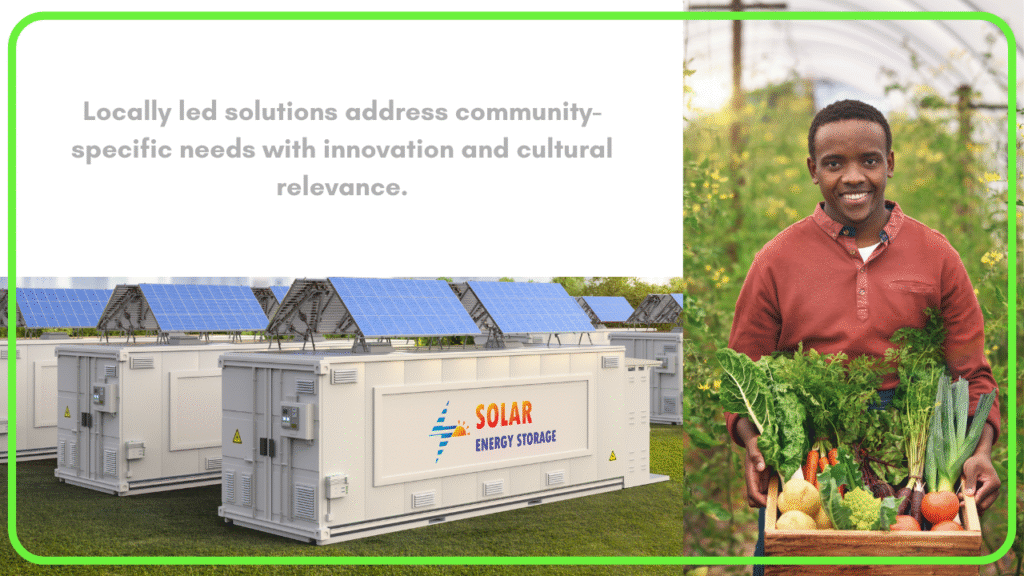
At EUSMS, our Entrepreneurship Program reflects this approach. We provide practical business education, mentorship from experienced entrepreneurs, and access to microfinance or catalytic capital that unlocks growth. We don’t impose solutions; we nurture them from within.
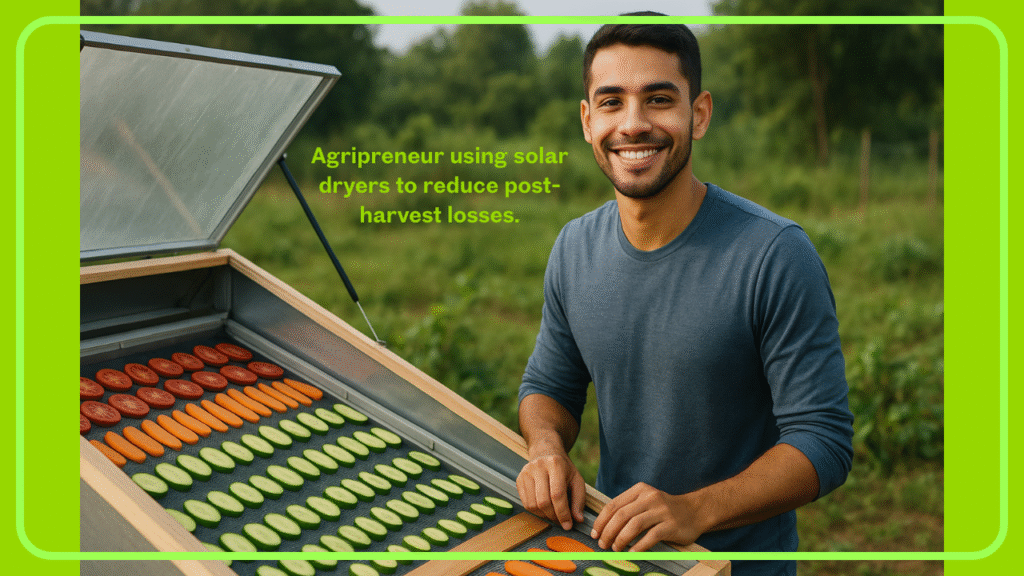
Investing in these entrepreneurs has a multiplying effect. When one small business takes off, it generates employment for peers, supports local suppliers, and increases food security. The ripple effect touches households and entire communities. Unlike conventional aid projects that often expire when funding ends, entrepreneurial ventures; when properly supported; become self-sustaining engines of progress.
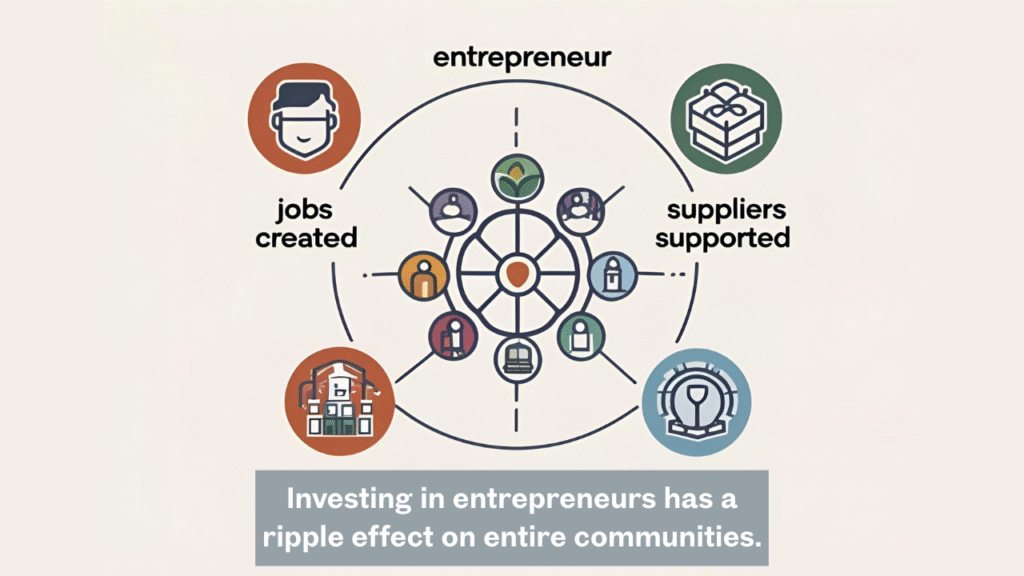
However, systemic barriers persist. Many promising entrepreneurs operate informally and lack access to capital, mentorship, or formal training. Financial institutions often require collateral these entrepreneurs cannot provide. Legal systems may be slow or inaccessible, and infrastructural limitations further complicate scalability.
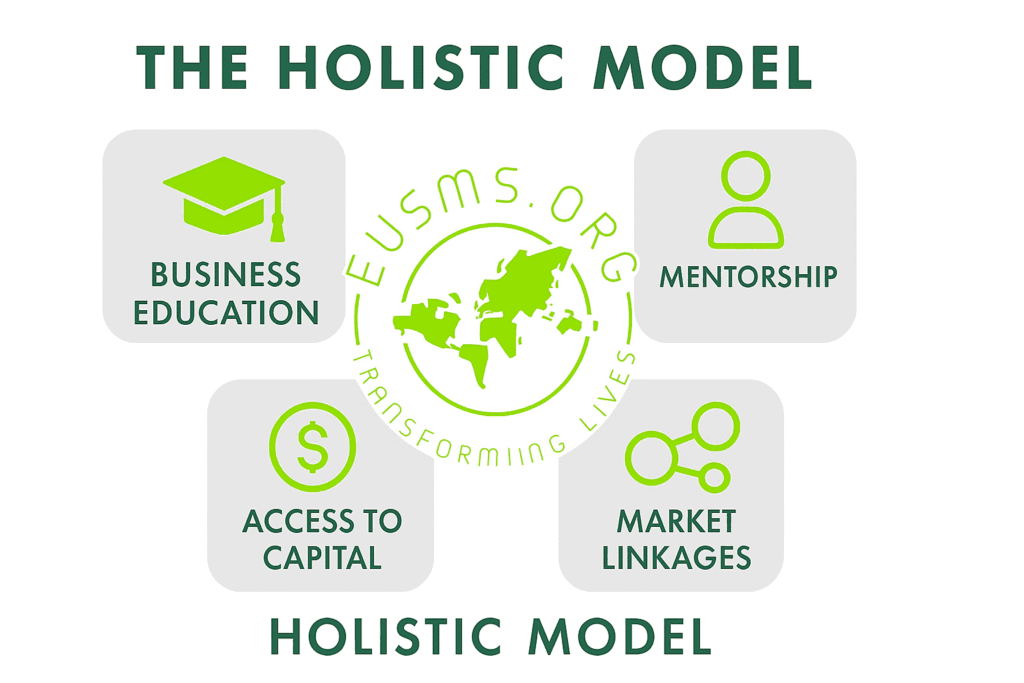
That is why EUSMS goes beyond training alone. We build holistic ecosystems that include:
Flexible capital and microfinance, tailored to early-stage entrepreneurs.
Technical and vocational education redesigned to embed entrepreneurial thinking.
Mentorship networks connecting experienced business leaders with young innovators.
Market linkages and digital platforms that expand reach beyond local boundaries.
Governments and policy-makers also have a role to play. Regulatory frameworks must encourage business creation, not stifle it. Investments in digital infrastructure, market access, and legal protections can make a significant difference. International donors, too, must evolve. Rather than funding only large NGOs or multilateral institutions, they can redirect funds toward locally-led businesses and social enterprises that are deeply rooted in their communities.
The ultimate goal is not merely to alleviate poverty; it is to equip communities to overcome it on their own terms. That means seeing people not as passive recipients of help, but as capable creators of solutions. It means shifting from charity to partnership, from short-term fixes to long-term investments.
At EUSMS, we believe that true development is not what we do for people; it is what they are empowered to do for themselves. As we rethink aid, let us imagine a world where the next breakthrough in clean water, food production, or education doesn’t come from a distant foundation, but from a young entrepreneur with a vision and the tools to realize it.
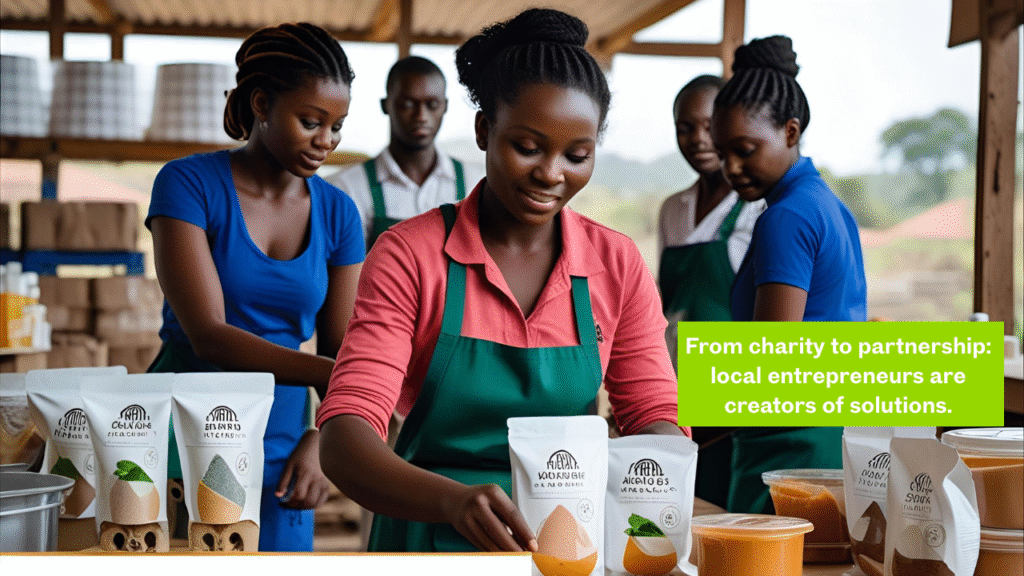
Join us in building a future where entrepreneurship ends dependency and unlocks dignity, resilience, and prosperity for all.
Learn more at www.eusms.org.
Author : Dorothy Kwamboka

